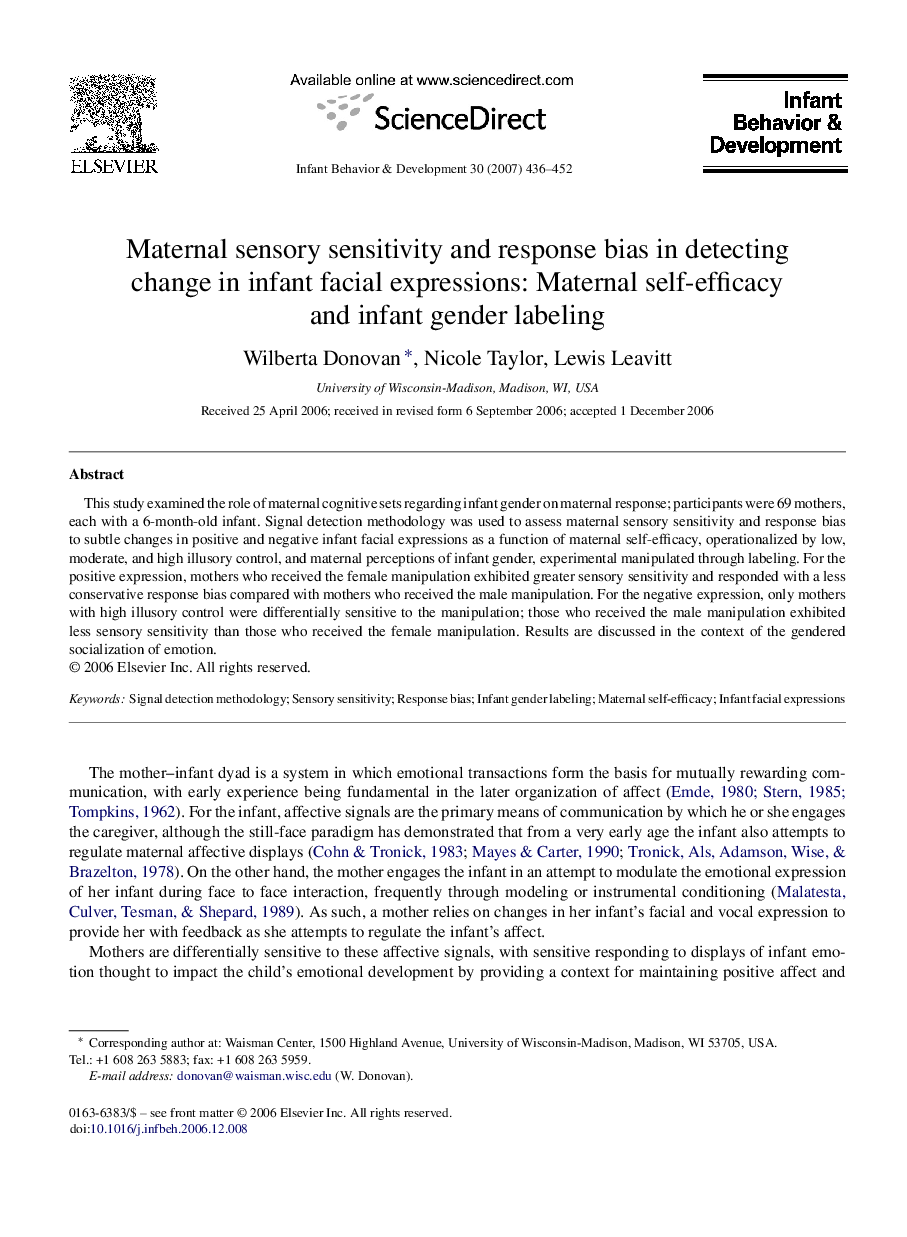| Article ID | Journal | Published Year | Pages | File Type |
|---|---|---|---|---|
| 917617 | Infant Behavior and Development | 2007 | 17 Pages |
This study examined the role of maternal cognitive sets regarding infant gender on maternal response; participants were 69 mothers, each with a 6-month-old infant. Signal detection methodology was used to assess maternal sensory sensitivity and response bias to subtle changes in positive and negative infant facial expressions as a function of maternal self-efficacy, operationalized by low, moderate, and high illusory control, and maternal perceptions of infant gender, experimental manipulated through labeling. For the positive expression, mothers who received the female manipulation exhibited greater sensory sensitivity and responded with a less conservative response bias compared with mothers who received the male manipulation. For the negative expression, only mothers with high illusory control were differentially sensitive to the manipulation; those who received the male manipulation exhibited less sensory sensitivity than those who received the female manipulation. Results are discussed in the context of the gendered socialization of emotion.
